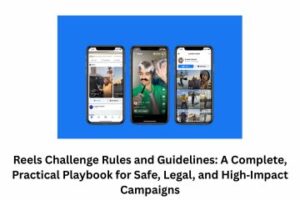AI and its Future Prospects
Written by: Ms Shalini Gupta
Introduction
Artificial intelligence is identified as a major driver of global economic recovery. AI is generally understood as the capacity of a machine to perform mental or physical tasks that are typical of humans. It is increasing continuously as spending by businesses and consumers for wireless services. It is one of the most growing and developing industries in the world.
Artificial Intelligence systems are described as a technological breakthrough that will completely transform our society and economy. But the growth of AI has it’s implications on data protection. The Internet has become one of the most important parts of our lives. Now with one click on the internet, we can take out any information about any topic. It is the most significant technological advancement all over the world.
Through the internet, not only we can get information, but we can also use it for entertainment purposes like we can play video games, watch videos and also learn something we want to learn in our free time. Through artificial intelligence, we can do our work in a very short time. It has made our lives very easier. AI operates 24×7 without any interruption. It also enables multitasking at one time. The biggest advantage of AI is that it has reduced human error, therefore, it saves our time.
Data Privacy Risks
The basic definition of privacy is having the power to seclude oneself, or information about oneself, in order to limit the influence others can have on our behaviour.[1] AI can violate our privacy. For example, these days many people post their private information on their social media accounts. As a result, others use this information for their profit.
In the current era, the maximum of the critical information details is processed online which is prone to cyber threats. There is no doubt that AI has to improve our lives but there are various scams over the internet. With the increasing use of the internet and AI, cyber-crimes risks are increasing day by day.
Cybercrimes include E-mail fraud, internet fraud, identity fraud, theft of debit or credit cards, phishing, hacking of personal information like passwords, important documents etc. Recently there was news that a 58-year-old woman in the city fell prey to an online scam while ordering a meal. She lost a whopping ₹50,000 to cybercrime while ordering a meal for just ₹250.[2] In 2019, one girl lost ₹95000 while ordering pizza. Also, it is very difficult to investigate cybercrimes and scams. Not only this, but people also face online harassment.
Cases Related To Cyber Crimes
In a case of cyberstalking where the victim was having a friend on the social media account. When she met him face-to-face, the victim did not like the nature of that friend so she unfriends him over social media. After that, she received some flimsy and vulgar comments on her, but she neglected to do the same.
After some days, emails were displaying nude photographs, pornographic postures, so she took out the print of all these emails and reported to the cyber cell. In this case, the accused got convicted for an offence punishable under section 509 of the Indian Penal Code and section 60E of the Information Technology Act.[3]
In another case, the accused has been convicted for sending obscene messages to a lady, defaming and causing mental harassment by putting up her personal details and information on a pornographic website to take revenge on her husband.
The victim started getting phone calls as the details were published on the pornographic site. The accused was held liable under sections 292, 465, 469, 500 of the Indian Penal Code and 66(C) and 67 (a) of the Information Technology Act and got 6 years of imprisonment and a fine of Rs. 9000/-.[4]
What can be done?
There are various safeguards that can be done to prevent cyber-crimes. Firstly and most importantly, we should avoid posting our personal details on the internet as well as social media accounts such as Facebook, Instagram etc. we should avoid posting each and every detail of our lives on the internet.
These days, people post each and every minute detail of what they are doing. If they are going shopping, they post it on social media and as a result, there may be a crime of theft because everyone knows that there is no one at your house. We should not trust online friends blindly. Users of social media or any account should keep their passwords unique and different for every account as it is very easy for hackers to hack the account.
We should not provide our personal details like credit card details over the phone calls to the unknown number because there are various fraud calls that try to take all our money. We should keep our life private. If there is a doubt that you are a victim of cyberstalking, then you must take professional help, we should not wait for the result of cyberstalking as it can be dangerous.
Conclusion
Artificial intelligence has attracted great attention in recent years. Cybercrimes are crimes that are related to artificial intelligence or which is committed through the internet. We are blessed that engineers have made our lives much easier by various inventions in computer technology.
The mobile crowdsensing (MCS) technology with a large number of Internet of Things (IoT) devices provides an economic and efficient solution to participation in coordinated large-scale sensing tasks.[5] But sometimes, these inventions are dangerous for some people because the criminals used that invention solely for harming others. We should be aware if we are using these technologies because anything bad can happen at any time.
References:
[1] Michael Diane, AI and the future of privacy, TOWARDS DATA SCIENCE (Sep 5, 2018), https://towardsdatascience.com/ai-and-the-future-of-privacy-3d5f6552a7c4.
[2] Sanjana Shenoy, Bangalore Woman Orders ₹250 Meal On Facebook & Loses ₹50,000 To Online Scam, CURLYTALES (Dec 28, 2020), https://curlytales.com/bangalore-woman-orders-meal-on-facebook-loses-to-online-scam/.
[3] State vs Yogesh Prabhu (2015).
[4] State vs Jayanta Das (2017), Manvi Singh, Cyberstalking, LATEST LAWS, https://www.latestlaws.com/wp-content/uploads/2018/08/Cyber-Stalking-Indian-and-International-Perspective-By-Manvi-Singh.pdf.
[5] Jinbo Xiong, An AI-enabled three-party game framework for guaranteed data privacy in Mobile Edge crowdsensing of loT, IEEE XPLORE (Dec 2, 2019), https://ieeexplore.ieee.org/abstract/document/8918437.
Previous Posts
Environmental Impact Assessment in India
Privatization Of Natural Resources: A Critical Threat To Sustainable Development
A Socio-legal study of the rights of traditional forest dwellers
Autism; A Socio-Legal Study On Mental Health Care Laws In India




